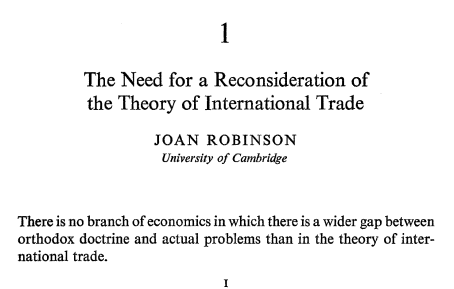The US public debt is rising $1 trillion every 100 days, headlines say. Is the US public debt sustainable?
Well, the US net international investment position is on an unsustainable path and that reflects on the US public debt. The solution is not fiscal contraction but using policy to address the US balance of payments.
According to the Federal Reserve release Z.1, the US net international investment position was −$19.37 trillion at the end of 2023. (Table B.1, line 24), while the Gross Domestic Product for 2023 was $27.36 trillion. (Table F.2, line 1).
Since government deficit is connected to the current account balance by an identity,
NL = DEF + CAB
where NL is the private sector net lending, DEF is the government deficit, CAB is the current account balance, it suggests a connection between the government deficit and current account balance not just as a static identity but behaviourally and there is a connection between the public debt and the net international investment position. In behavioural stock-flow consistent models, this can be seen more clearly.
The US has had high current account deficits and that has put the US economy on an unsustainable path.
And in general, there is no market mechanism to resolve imbalances. Lots of political discourse in the US has been around trade/tariffs etc. Industrial policy has also appeared. Note that many people define industrial policy as government picking winners, but that is misleading/a deceit. The aim of industrial policy is to improve competitiveness of a country and that has to do with exports and imports.
A lot of people complaining about the path of the US public debt seem to suggest that the way to solve it is via fiscal contraction. But that causes a deflation of the US economy and increases unemployment.
But sadly, the other side denies that there is any problem with sustainability/trade etc. So we have crazy politics. An important problem is the lack of understanding how economic forces operate. Or that people’s self-interests stand in the way of understanding.
Note that “r < g” is not a condition for sustainability.
The resolution of the problem lies in the US asking the rest of the world to increase growth by more fiscal expansion (which would increase US exports and reduce US imports relative to GDP), use protectionist measures and industrial policy and then work toward a system of planned/regulated trade where international trade is generally balanced.
